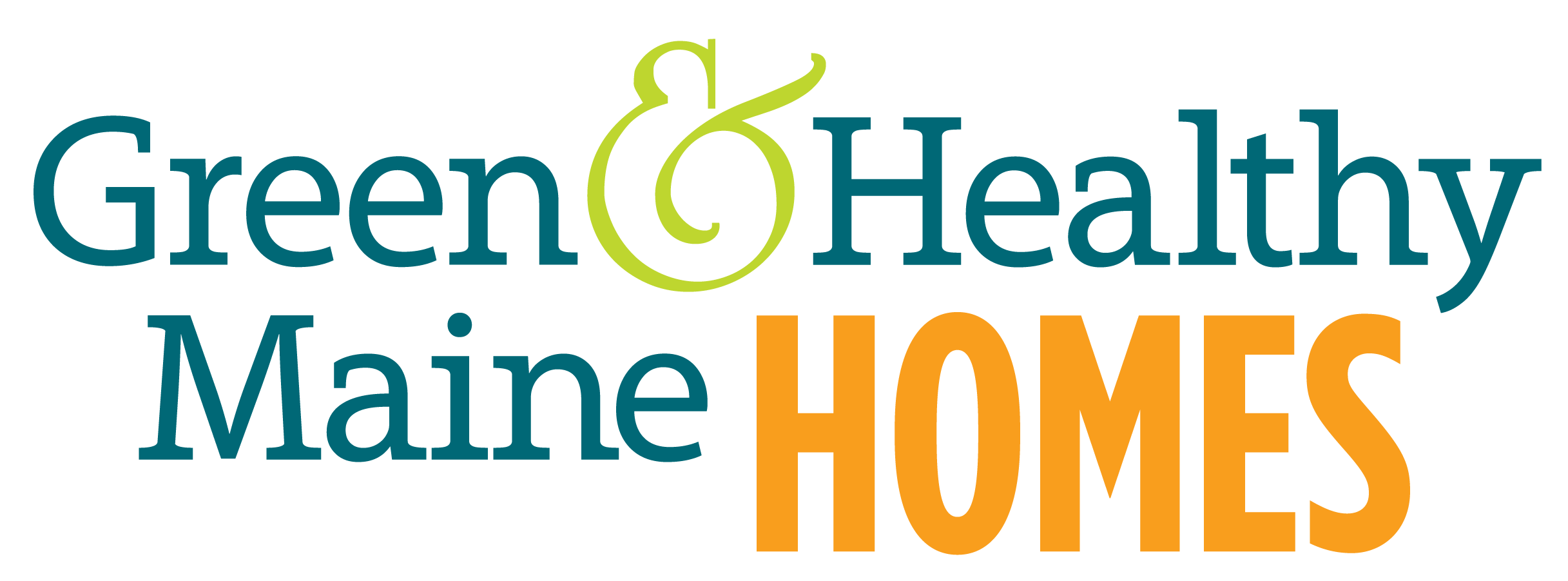Pearl certification, a new efficiency rating system
By Amy Grommes Pulaski
What are the items on your wish list when you dream of buying your next home? A big back yard with a tree and a swing, a garden, a master bedroom that overlooks the water...the list goes on. But, what about heating costs or energy bills? Many of us do not think about the energy efficiency of a home until mid-December when that first heating bill comes in. That’s exactly what happened to me. And that first heating bill was over $500. Ouch!
When we bought our house, I wished someone could have told us – with some degree of accuracy – what we should expect in terms of heating and cooling. Or, what if there was a system that could help homebuyers like us compare the energy efficiency of one home to the one down the street? Thanks to a new certification program for homeowners, there is now a program that does just that.
Launched in May 2015 and just beginning to take off in Maine, Pearl certification provides third-party verification for high-performing homes using a 1,200-point rating system to evaluate a home’s energy efficiency, health and performance. If a home’s total score is above a certain threshold, it can receive a Silver, Gold or Platinum certification from Pearl.
Pearl works with a network of home performance and energy contractors across the country who provide documentation of qualifying upgrades. Because the program was developed in tandem with the National Association of Realtors and the Appraisal Institute, the certification is recognized by the MLS (Multiple Listing Service) real estate system and appraisers alike.
At the moment, there are two Pearl-certified contractors in Maine: Insource Renewables of Pittsfield and Horizon Homes, based in Portland. I had an opportunity to connect with both Vaughan Woodruff of Insource Renewables and David Milliken of Horizon Homes to learn more about the program.
AGP: How exactly does Pearl certification work?
Vaughn: Pearl certifies residential energy efficiency and renewable energy investments. Pearl works with a network of high-performing contractors nationwide that meet their professional standards. As a Pearl Advantage Contractor, we are able to certify our solar and heat pump installations for our clients. We submit information on the equipment and the home for Pearl's review following installation, and they provide a certification that reflects the level of benefit the investment provides to the home, details the features of the investment, and produces a report and appraisal documentation for the homeowner. The purpose of the certification is to help establish the value of energy efficiency and renewables for the real estate market by providing real estate agents and appraisers the tools they need to substantiate that value.
Dave: Energy efficiency work is mostly unseen. When a company like Horizon works with a homeowner to make energy efficiency upgrades, there hasn’t been a way to verify that work. Now there is. Pearl allows us to document the energy efficiency features of a home and plug them into an energy model to rate the home and determine how it compares with other homes in that same climate zone.
AGP: How is Pearl different from an energy audit?
Dave: An energy audit includes a survey and evaluation of your home’s efficiency (or lack thereof) and recommendations for improvement. Pearl Certification is a way to rate the efficiency of a home. So Pearl is your test score, and an energy audit is your teacher telling you what needs improvement and how to get better.
AGP: What is the value of Pearl certification to the homeowner?
Dave: Pearl helps homeowners justify and quantify energy efficiency upgrades. Pearl also gives guidance on how to give a monetary value to energy efficiency, which can translate into higher appraisals and [higher] sales prices.
Vaughn: While solar has demonstrated its ability to increase home values in areas of the country where solar is prevalent, there hasn't been enough data in Maine's market to substantiate that trend. Homes with Pearl Certification typically sell for 5% more than comparable homes without Pearl Certification. In a state where energy costs represent a relatively high portion of household expenses, Pearl Certification helps to identify homes that are more energy secure for their owner. This is beneficial to buyers and sellers.
AGP: Can homeowners self-certify, or can it only be done by a registered contractor?
Vaughn: Homeowners and realtors can certify through a Pearl Advantage Contractor or through Pearl directly. The process involves entering data on the home's features and verification by a Pearl-approved inspector.
AGP: Do you see it as a growing trend for Maine?
Vaughn: As the Maine MLS adapts to the market's interest in high- performance homes, which it has been doing, Pearl Certification provides another standard by which Maine realtors, home sellers and home buyers can highlight the added value of a green and healthy home.
Both Horizon and Insource Renewables offer Pearl Certification as a free option on their projects. Homeowners can also reach out to Pearl directly to begin the process.
Founders of Pearl are hoping to transform the residential market and certify 5% of the U.S. housing stock in the next five years. Pearl works in partnership with the U.S. Department of Energy’s ENERGY STAR® Program, the National Association of Realtors and the Appraisal Institute. Learn more at www.pearlcertification.com.


